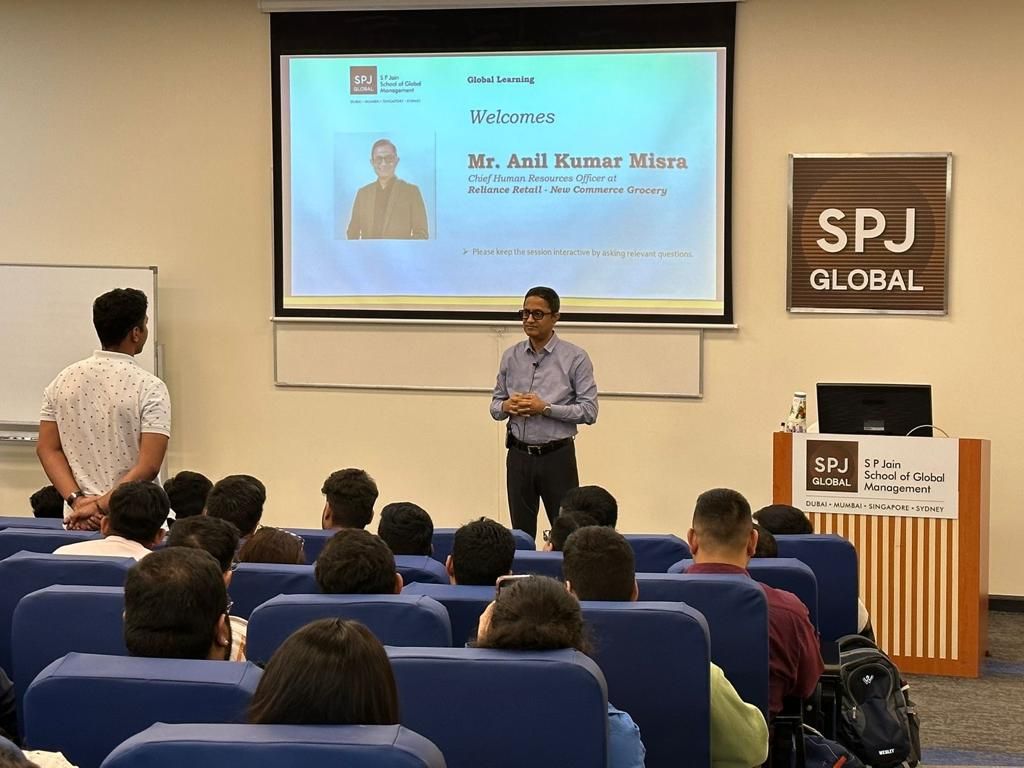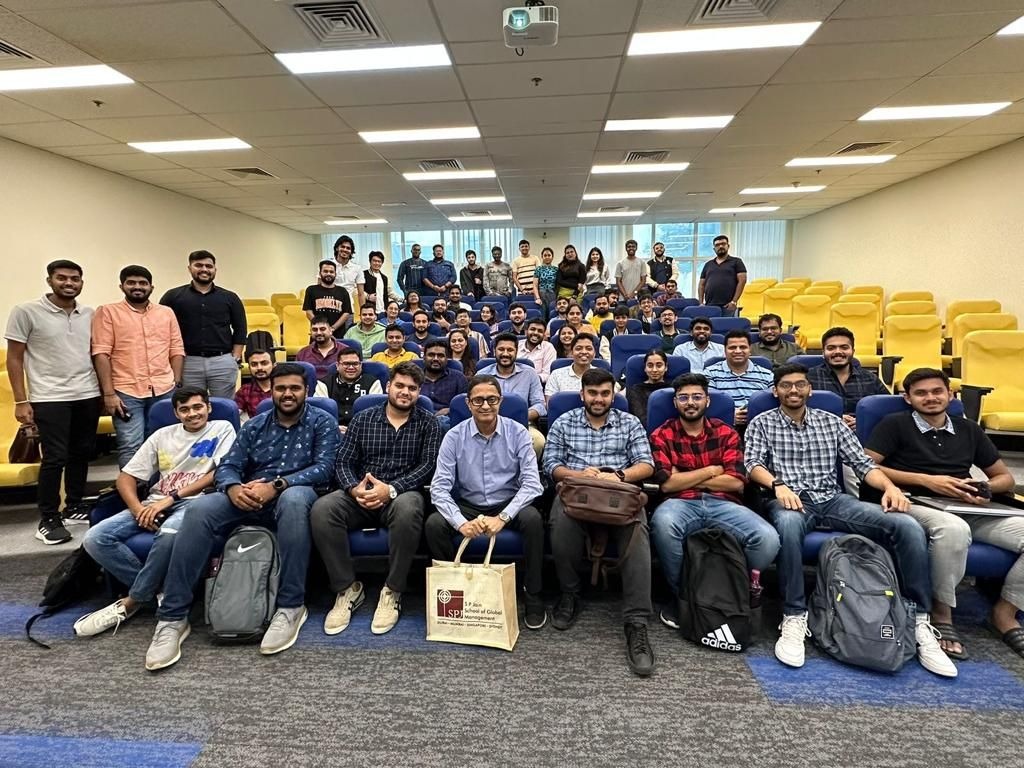What I Learnt About Revolutionising the Future of Work from Reliance Retail’s Anil Kumar Misra
Anil Kumar Misra, the Chief Human Resources Officer at Reliance Retail, recently visited SP Jain School of Global Management’s Dubai campus. His robustness and energy immediately captured our attention, and we listened to his insights with enthusiasm.

He discussed the importance of being aware of current market trends, specifically regarding the transformation of the modern workplace driven by technological advancements, shifting generational demographics, and changing employee expectations, steering the conversation towards a work environment rooted in flexibility rather than rigidity. Stressing the importance of recruiters and HR professionals changing their strategies to effectively navigate this dynamic environment by staying aware of emerging trends and adapting their strategies accordingly, they have identified four key trends:
1. Workplace Flexibility: Embracing the New Normal
Post the COVID-19 pandemic, the demand for workplace flexibility has seen an upsurge, a trend significantly shaping the workplace. Employees are shifting their priorities to maintain a better work-life balance instead of working in the traditional 9-5 schedules, and the demand for remote working is skyrocketing exponentially. HR professionals today recognise this shift and adapt their policies and practices to accommodate the growing demand. Moreover, jobs today offer flexible work arrangements and hours, as they know this will not only improve employee satisfaction and productivity but also attract and retain top talent.
2. Multigenerational Workforce: Bridging the Gap
The modern workforce today consists of individuals across different demographics, whether Gen Z, Millennials, or Gen X. Each group brings unique values, perspectives, and work styles with them. Understanding the different characteristics of each generation is crucial for creating a workplace that fosters collaboration and inclusivity. HR professionals face the challenge of bridging the generational divide to ensure all employees feel valued, respected, and engaged.
For instance, younger generations may prioritise work-life balance and opportunities for growth, while older generations may value job security and mentorship. By having HR strategies that address the needs and preferences of different generations, organisations can create a collaborative and creative work environment.
3. Gig Economy: The New Employment Landscape
The future of work is the gig economy based on short-term contracts and freelance work, presenting both opportunities and challenges for HR professionals. On one hand, the gig economy offers a large pool of talent and the flexibility for organisations to adjust staff levels based on demand. Nonetheless, managing gig workers requires a different strategy, as traditional employment contracts and benefits may not apply.
Companies develop strategies for attracting, engaging, and managing gig workers effectively, ensuring compliance with labour laws and providing a positive work experience that meets the needs of young workers who seek job flexibility.
4. Reverse Mentoring: Fostering Cross-Generational Learning
Reverse mentoring is another emerging trend in which younger workers mentor older ones. This recent strategy has gained momentum and has been recognised as a valuable tool for knowledge transfer and skill development. Businesses facilitate reverse mentoring programs, pairing experienced professionals with younger colleagues to exchange knowledge and perspectives. This approach not only helps bridge the generational divide, but also empowers younger workers, enhances their career development, and opens the doors to further innovation and creativity.
In conclusion, the keys to success in a rapidly evolving workplace are adaptability and flexibility, which prospective employees and HR professionals should embrace. The ability to anticipate and respond to emerging trends and adapt company HR policies is crucial to remain competitive in the market. Remaining open to new ideas and approaches is essential for success. As the workplace continues to transform, aspiring professionals who prioritise continuous learning, embrace innovation, and foster a culture of adaptability will be successful leaders within their organisations, paving their way towards the future.

About the Author

Hibah Ali is a student of Master of Global Business at SP Jain School of Global Management. She is a driven young individual passionate about networking and building long-lasting connections. Based in Dubai, she excels in strategising and innovative problem-solving, and demonstrates a deep interest in digital transformation and marketing. With an ability to collaborate effectively with people from all walks of life, she possesses a strong enthusiasm for driving progress in the digital world.




